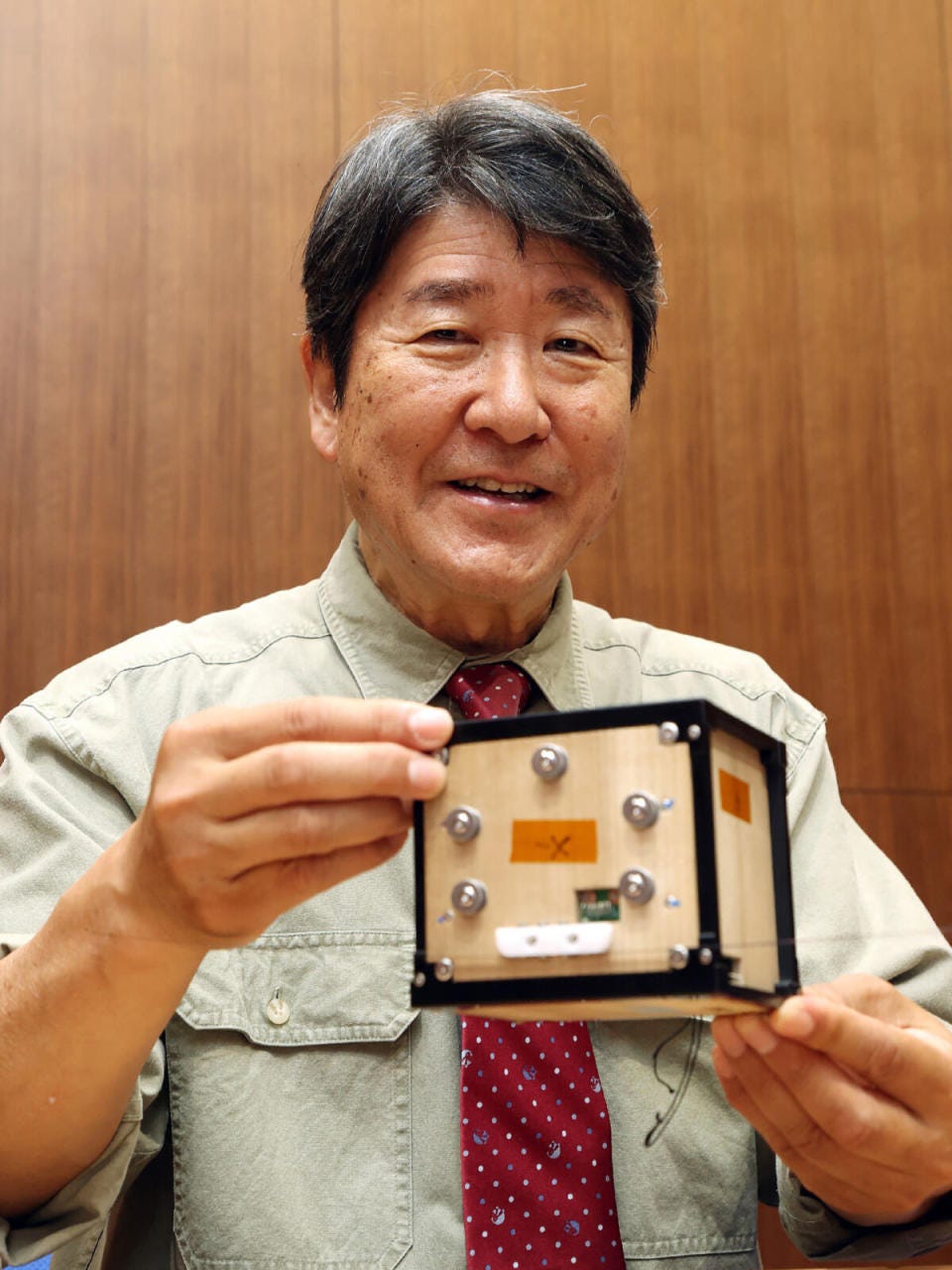World’s First Wooden Satellite - LignoSat
Discover how LignoSat, the world's first wooden satellite, is set to revolutionize space exploration with sustainable technology. Dive into this Sunday’s Rise & Shine!
Welcome to another inspiring edition of Rise & Shine!
This Sunday, we're thrilled to bring you a remarkable story of innovation and sustainability that pushes the boundaries of what's possible.
As we explore new frontiers, one groundbreaking project is set to redefine space technology.
Discover how Kyoto University and Sumitomo Forestry researchers are launching the world's first wooden satellite, LignoSat, to make space exploration more sustainable.
LignoSat: The World’s First Wooden Satellite Set for Launch
In a groundbreaking development, researchers from Kyoto University and Sumitomo Forestry have unveiled LignoSat, the world's first wooden satellite, set to launch in September 2024.
This innovative project aims to explore the potential of wood as a sustainable material for space applications and reduce the environmental impact of satellite reentries.
LignoSat Material and Design
LignoSat's unique design showcases the innovative use of magnolia wood, selected for its robustness and workability following extensive space exposure tests on various wood types.
The satellite's compact cube structure, measuring just 10 centimeters on each side and weighing approximately 0.9 kilograms, employs traditional Japanese joinery techniques, eschewing the use of screws and glue.
Equipped with external solar panels for power, LignoSat's wooden components replace the conventional aluminum parts found in traditional satellites.
Environmental Impact of LignoSat
LignoSat's wooden construction offers a potential solution to the growing concern of space debris and pollution caused by traditional satellites.
When the satellite reaches the end of its six-month to one-year service life and reenters Earth's atmosphere, the magnolia wood is expected to incinerate, releasing only water vapor and carbon dioxide completely.
This eco-friendly approach aims to mitigate the release of harmful metal particles that can negatively impact the environment and telecommunications, a problem associated with the reentry of conventional satellites.
LignoSat Objectives and Experiments
LignoSat's mission focuses on evaluating the behavior and durability of wood in the harsh space environment.
Researchers will closely monitor the satellite's performance, gathering data on wood expansion, contraction, and degradation, as well as internal temperature and electronic equipment functionality.
Equipped with an array of sensors, LignoSat will measure strain, temperature, geomagnetic forces, and cosmic radiation while demonstrating its ability to receive and transmit radio signals.
The success of this mission could pave the way for utilizing wood in future space applications, such as constructing human habitats on the Moon and Mars, and leveraging its natural properties like radiation shielding and insulation for sustainable space exploration.
Future Prospects of Wooden Satellites
The development of LignoSat marks a significant step towards more sustainable and environmentally friendly space exploration, with the potential to revolutionize satellite design and construction.
If successful, this project could inspire further research into the use of wood and other biodegradable materials in space technology, aligning with broader goals of reducing space pollution and promoting eco-friendly practices.
Takao Doi, an astronaut and professor from Kyoto University, envisions the possibility of constructing wooden housing on the Moon and even Mars to grow timber forests in the future.
However, the structural integrity, safety, and longevity of wood in space need to be confirmed, as concerns have been raised about the potential degradation of wood's mechanical properties due to galactic cosmic radiation and solar energetic particles.
As we look to the stars, projects like LignoSat remind us of the endless possibilities that innovation and sustainability can offer.
Stay tuned for more updates on this exciting venture and other groundbreaking stories in our next edition.
Until then, have a fantastic Sunday, and keep shining!



